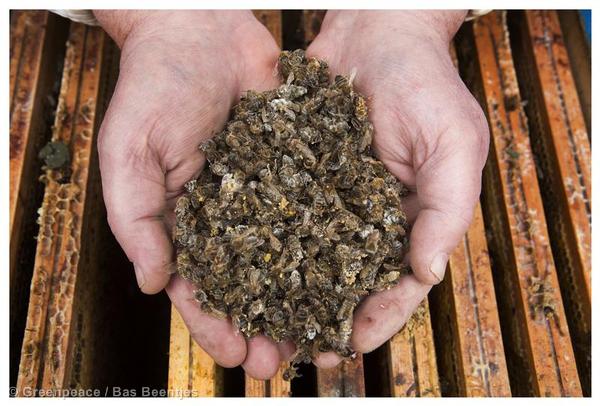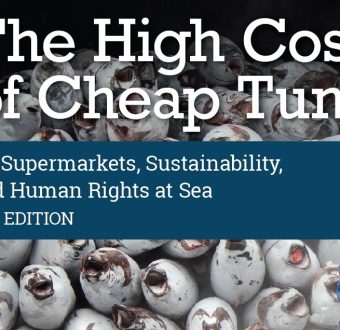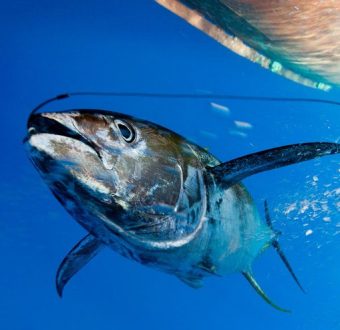Days before the key EU vote to ban bee-killer pesticides, Greenpeace is attending the annual general meeting (AGM) of Syngenta in Basel, Switzerland, in order to alert shareholders to the companys role in the global decline in bee populations and ask them to challenge the chair of Syngenta board to stop marketing these deadly products.
Activists and beekeepers are demonstraing outside the shareholders assembly, while representatives of Greenpeace and the European Beekeeping Coordination are directing questions to the Syngenta board about the reputational and financial risk faced by the company in light of the probable ban. Last month, the European Commission put forward a proposal for a ban on bee-killer pesticides produced by Syngenta and Bayer.
But, even though peer-reviewed scientific studies say thatseveral factors lead to bees decline(namely climate change, diseases, parasites, monocultures, loss of habitats and the widespread use of pesticides), Syngenta is trying to make us believe that bee populations can recover if we mainly fight one of the factors: the varroa mite.According toSyngenta,there is () no direct correlation between neonicotinoids use and poor bee health, although a correlation can be drawn between bee losses and the presence of the Varroa mite.
But bee decline is more complex and all factors that contribute to bee decline must be addressed. How long will Mr. Martin Taylor, Chairman of Syngenta, deny scientific evidence showing that Syngentas blockbuster pesticide thiamethoxam is linked to the global bee decline according to peer-reviewed scientific studies? Bees are running out of time.
A first crucial step that needs to be taken right now is banning bee-killer pesticides. On 15 March, a majority of EU countries backed a Commission proposal to ban three neonicotinoid pesticides (including Syngentas thiamethoxam, and Bayers clothianidin and imidacloprid) at a votebut failed to achieve the necessary qualified majority. On the 29th of April, EU member states will vote for a second time through an appalate body composed by higher member states representatives. If the vote failed again because no qualified majority is reached, the European commission has the power to implement a ban.
The ban could enter into force as early as July 2013, once the proposal has been accepted by EU member states or put in place by the Commission, The pesticides industry ismounting a furious lobbying campaign, to avoid a ban and protect its profits at the cost of the bees and pollination. However, such behaviour is against the long term interest of Syngenta shareholders and in fact of any human beings, as our food production relies heavily on pollination services provided by bees and other pollinators.
Greenpeace asks the EU Member states to vote in favour of the commissions plan which is a welcome first step to address the harmful effects of pesticides on bee. However, the commission has also to endorse ambitious Europe-wide action plans to ban all pesticides that are harmful to bees and other vital pollinators. The commission should also shift funding away from chemical-intensive agriculture and promote ecological farming.
While agriculture multinationals like Syngenta and Bayer care only about profits, their bee-killer pesticides put bees and other pollinators at risk. Without bees and their natural pollination global food production would be severely damaged.
The latest report by Greenpeace,“Bees in Decline”, identified seven priority bee-killer pesticides that should be banned due to their toxic effect on bees. The list includes Bayers imidacloprid and clothianidin, Syngentas thiamethoxam, BASFs fipronil and chlorpyriphos, and cypermethrin and deltamethrin, produced by other pesticides companies.
The elimination of these bee-killers is only the first step in protecting bees and agriculture in Europe. The only long-term solution is a shift away from chemical-intensive agriculture to ecological farming practices.




